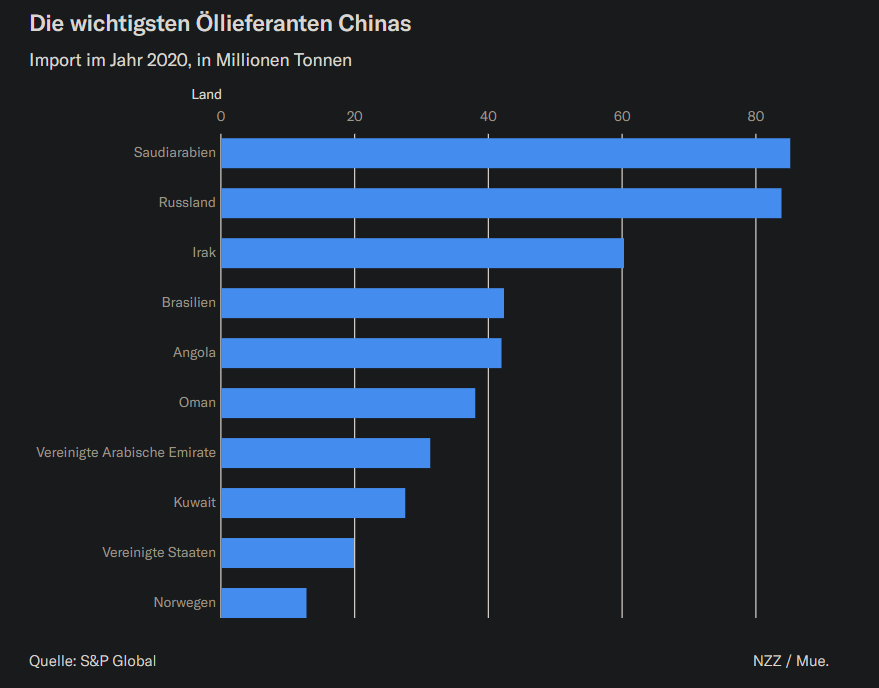
#Thread about #CommodityMarket #trade #geopolitics #Switzerland :
Despite billions in sales, the names of the major commodity traders such as Vitol, Cargill, Trafigura, Mercuria or Louis Dreyfus are largely unknown to the general public.
nzz.ch/pro-global/per…
Despite billions in sales, the names of the major commodity traders such as Vitol, Cargill, Trafigura, Mercuria or Louis Dreyfus are largely unknown to the general public.
nzz.ch/pro-global/per…
After all, the Swiss raw materials group Glencore has emerged from the dark after its IPO in 2011 and several scandals that made headlines.
The numbers are impressive: the three retailers Cargill, Vitol and Glencore made a combined net profit of around 76 billion dollars in the decade before 2011. This is more than Apple's or Coca-Cola's profit during that period
Most trading houses are private companies that have a small group of owners and only have to publish a few business figures.
Oil is the biggest business of most commodity traders
nominal oil price, in $ per barrel
1 = First oil shock: Independent traders appear on the market
2 = Iranian revolution
3 = Iraq invades Kuwait
img.nzz.ch/2021/3/24/5a88…
nominal oil price, in $ per barrel
1 = First oil shock: Independent traders appear on the market
2 = Iranian revolution
3 = Iraq invades Kuwait
img.nzz.ch/2021/3/24/5a88…

4 = Chona's rise causes raw material prices to rise
5 = financial and debt crisis
5 = financial and debt crisis
Commodity traders are not political actors in the strict sense. For them, civil wars, embargoes or pariah states are above all business opportunities.
• Until the 1970s, the so-called seven sisters, powerful western oil companies, ruled the oil market. Independent commodity traders helped break up this oligopoly.
This also made it easier for petro-states to nationalize oil companies because they had a buyer. This changed the power tectonics, especially in the Middle East.
• Commodity traders were also at the forefront when doing business with the Soviet Union and its satellites such as Cuba during the Cold War.
• This business relationship continued even after the collapse of the communist bloc. Trading houses, for example, evaded the American sanctions against Cuba.
• The duration of the apartheid regime in South Africa was extended by deliveries of raw materials by traders who circumvented international sanctions.
• For some countries and companies, commodity traders are one of the few ways to get foreign currency loans. Some traders are so weighty that they are included in the foreign debt statistics. In the case of Chad, this is Glencore.
• During the Libyan civil war, oil traders supported the rebels in the fight against the dictator Ghadhafi with fuel deliveries - with the approval of the Western alliance.
The raw materials industry has started to soar, especially due to the rise of China from the 2000s onwards
The raw materials industry has started to soar, especially due to the rise of China from the 2000s onwards
• The information advantage that trading houses have built up over the decades has shrunk due to the better availability of data in the raw materials industry.
• The zeitgeist is turning against globalization and free trading systems. Business opportunities decline in fragmented markets.
• A large part of the profits was made by traders in the oil business. As a result of the energy transition, this part of the trading volume is falling. It is questionable whether the trade in metals for batteries, electricity or CO2 certificates will compensate for this.
• Because of their economic success, dealers' business practices are increasingly monitored by authorities and the general public.
• Some producer countries and also raw material groups have set up and expanded trading companies themselves.
• Above all, China, one of the most important customers of Vitol, Cargill and Co., is trying to meet the huge demand for raw materials on its own. Chinese companies are also becoming competitors.
• The pressure on the business model of the large commodity traders is increasing.
• Some companies such as Glencore or Cargill are therefore changing from retailers to producers.
Business in the gray area of illegality will increasingly be a thing of the past because the authorities take a closer look.
Business in the gray area of illegality will increasingly be a thing of the past because the authorities take a closer look.
The financial sector in particular will place higher demands on retailers.
In the future too, raw materials will have to be brought from the producer to the consumer. The geopolitical impact of these actors will not necessarily decrease, but it will certainly become more visible.
In the future too, raw materials will have to be brought from the producer to the consumer. The geopolitical impact of these actors will not necessarily decrease, but it will certainly become more visible.
Thread by @WholePicture_: #Thread about #CommodityMarket #trade #geopolitics #Switzerland : Despite billions in sales, the names of the major commodity traders such as Vitol, Cargill, Trafigura, Mercuria or Louis D...… threadreaderapp.com/thread/1377224…
• • •
Missing some Tweet in this thread? You can try to
force a refresh



